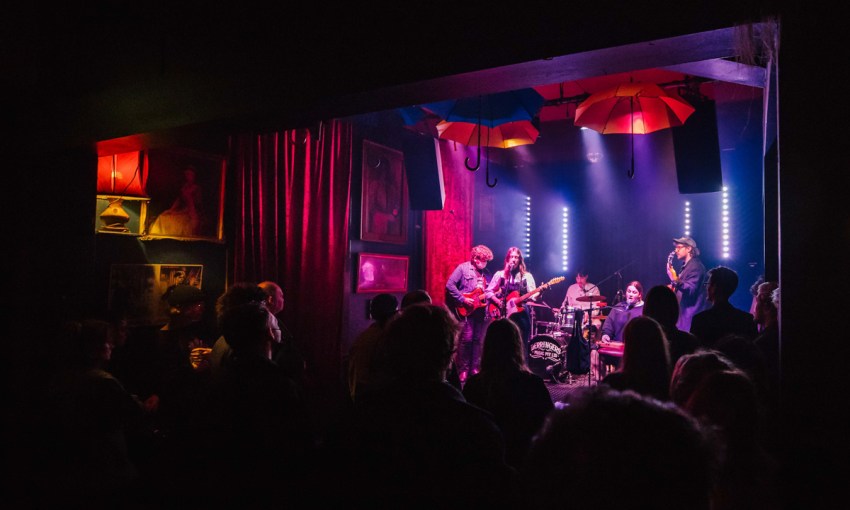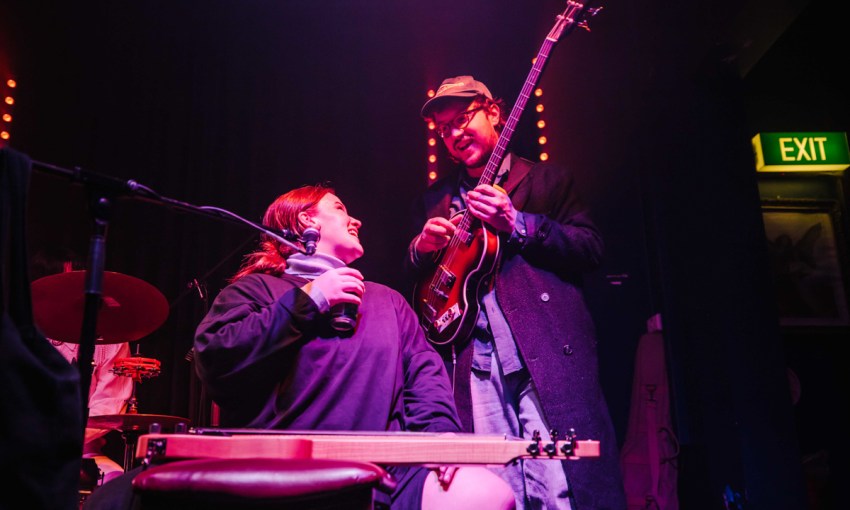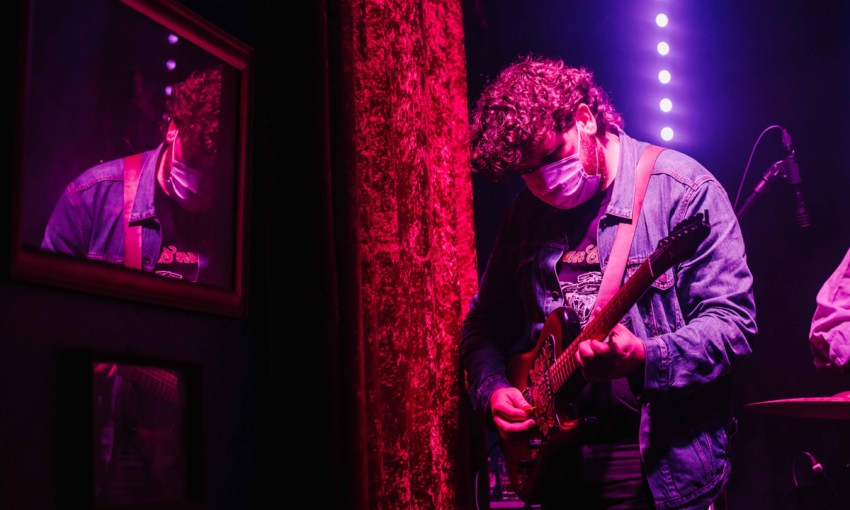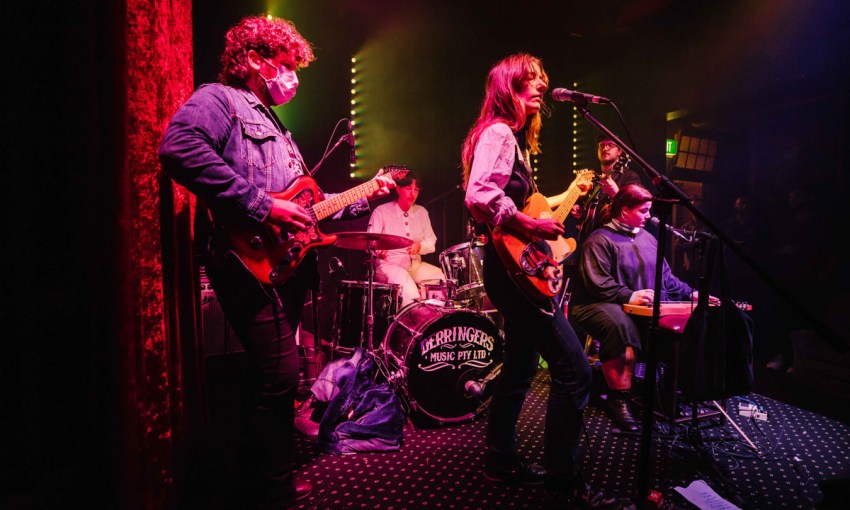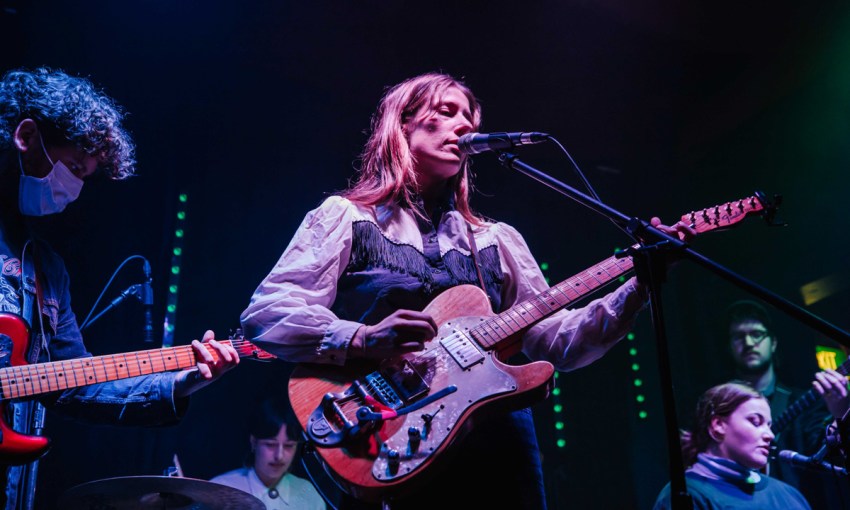After taking an unofficial hiatus, Workhorse returns as a solo endeavour from Harriet Fraser-Barbour, who has turned her lament for a lost Adelaide into a viscerally haunting soundscape.
Workhorse’s ghosts of Adelaide past
It’s eight o’clock in the evening when CityMag walks through the door of the Grace Emily. Low conversation envelopes us as we move through the venue, the crack of an eight-ball game intermittently breaking above the din.
We follow the sound of the pool table and find Harriet Fraser-Barbour sunk into a couch, surrounded by friends and bandmates – some from Fair Maiden, the band opening tonight’s gig and for which she plays guitar, as well as Workhorse, the headliner, which she fronts.
Harriet wears a bulky jacket and a baseball cap low over her eyes. She tells CityMag she has a dead arm due to a COVID shot she got earlier that day – a measure to ensure Workhorse’s Adelaide-to-Darwin tour goes smoothly.
Not all hitches will be avoided, though: the original opener for tonight’s show, Eyrie, pulled out due to the virus.
The tour is in support of No Photographs, the band’s sophomore album and its first major release in five years. Before this, the band had been on “unofficial hiatus”.
It was never announced, Harriet tells us from our new perch at the front bar, “but I’m really glad that I did have some unofficial time out”.
Workhorse was founded in 2016 as a means for Harriet to play her own music, having long played in other people’s bands. She’s also been a key presence in Adelaide’s DIY music scene, and ran DIY festival Half Strange for a handful of years.
The pandemic provided Harriet an excuse to take some time away from playing shows, but it was also the catalyst for reengaging creatively with Workhorse. In the midst of a lockdown, she booked some studio time in 2020, bringing in a bunch of “three-quarters done songs”.
Harriet wrote the album alone. “The kind of music that I made on this record I don’t think I could’ve done with a band,” she says. “It was like I needed to take it away by myself and finish it by myself and then present it to the band.”
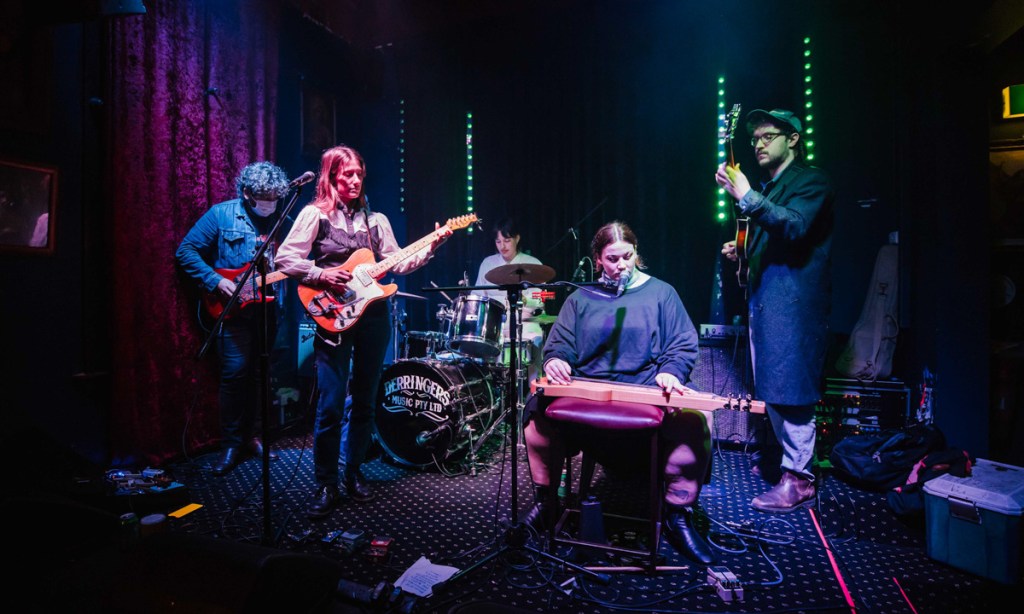
There are more ghostly soundscapes on No Photographs than on Workhorse’s previous album. With only a couple of exceptions (title track ‘No Photographs’ and ‘Rode a River’), the band’s dark country music moves at the pace of a bridal procession, cloaked by layered vocals lush with reverb.
Harriet responds ambivalently to questions about lyrical intent. She writes lyrics last and “very reluctantly”. But there is haunting loneliness and bittersweet acceptance all over the album. These appear to have been feelings Harriet was dealing with during the album’s recording.
She announced to friends and family a plan to move to Melbourne just before the pandemic. “I was feeling really isolated here in Adelaide,” she says. She decided wanting to meet new people was reason enough to move. When lockdowns started, she cancelled these plans, and instead had an “introspective” two years in Adelaide.
“I was able to embrace small things that bring me joy, instead of big existential finding your purpose in life,” she says.
“I just felt happy doing little things like tending to the ducks and taking the dog for walks and cleaning. I don’t know. Satisfaction in domestic things.”
Returning to stages, Harriet has noticed Adelaide has changed since she debuted Workhorse. The “weird, underground music, and cool DIY culture” is mostly gone, she says.
“A lot of the bands that I know now… they play just different music, and it seems more commercial.”
Many of her friends have left, so to bring Workhorse to the stage she’s engaged with a “younger generation” of Adelaide musicians. “There’s always an ebb and flow,” she says.
“It took me a few years to find a new little bubble.”
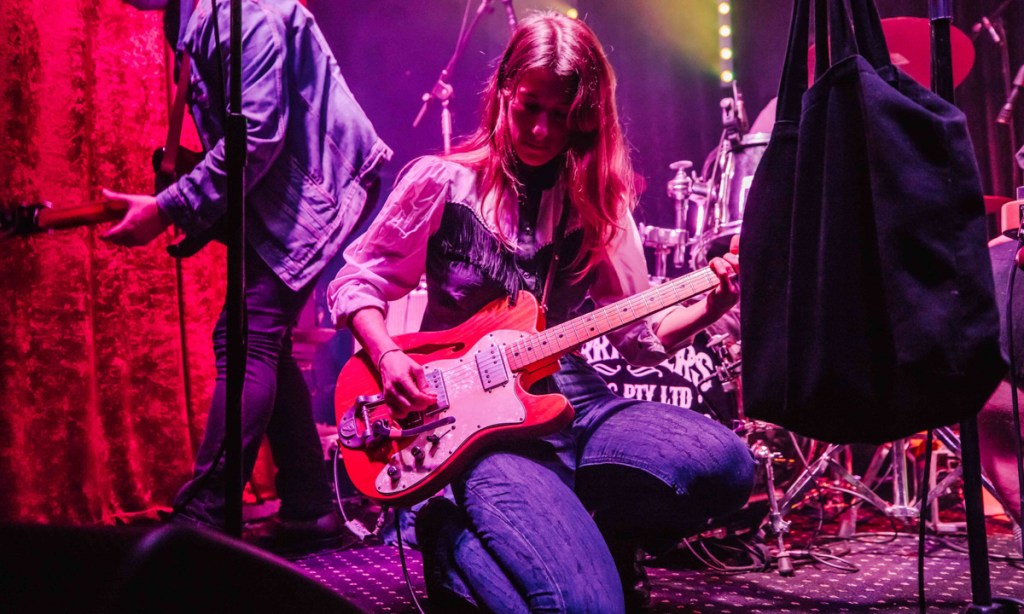
Tonight, she’s joined on stage by Ricky Albeck on guitar, Jesse Davidson on bass, Jess Johns on lap steel and backing vocals and Vanessa Marousopoulos on drums.
There’s limited space on stage; Jess jokes she can feel Jesse’s bass above her head, so Jesse drops a leg off the side of stage to avoid hovering. It’s cosy-looking.
The band room fills as Workhorse breaks into ‘Pocalypse’, the opener of its 2017 record, No Sun. Like on stage, there’s a conscientious closeness developing amongst punters. Some wear masks (like Ricky is on stage), but none seem to mind brushing shoulders on trips to and from the bar.
By the second song – ‘Dreamhorse’, a No Photographs track – the crowd is transfixed. A gentle sway ripples through the bodies in the room.
Some have eyes closed, giving themselves over to Harriet’s and Jess’s harmonies, which hang like a spectre in the air. Those with eyes open see a smile creep over Harriet’s face, meeting Jesse’s gaze as their music stretches out in the minds of listeners.
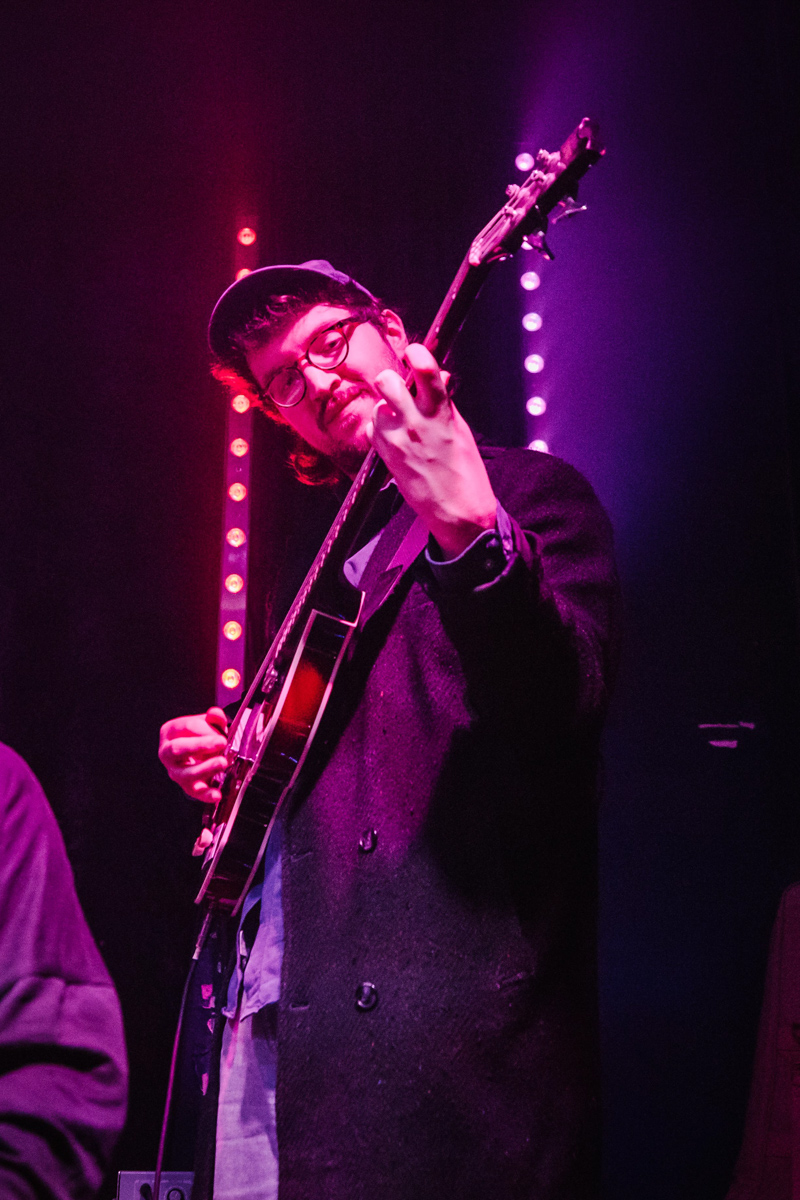
When writing Workhorse songs, Harriet thinks about long drives, sometimes soundtracking “imagined Western movies”. Her dad listened to a lot of country music when she was growing up, which had its influence. But the sun-bleached visions of Workhorse come from deep within Harriet’s mind.
“I have a lot of post-apocalyptic dreams, and there’s a few post-apocalyptic songs,” she says.
“I really liked being a scout, and I always like being prepared and things like that, so my dreams are usually not about the disaster but preparing for the disaster.” As a lover of long drives, she also wonders how much the Australian landscape influences her songs.
Throughout Workhorse’s set, barely a phone is raised to capture the show. The crowd is too engrossed. While Harriet may no longer dream of escaping to a bigger city, the music she makes – visceral and expansive – is its own escape. For her and for us.



